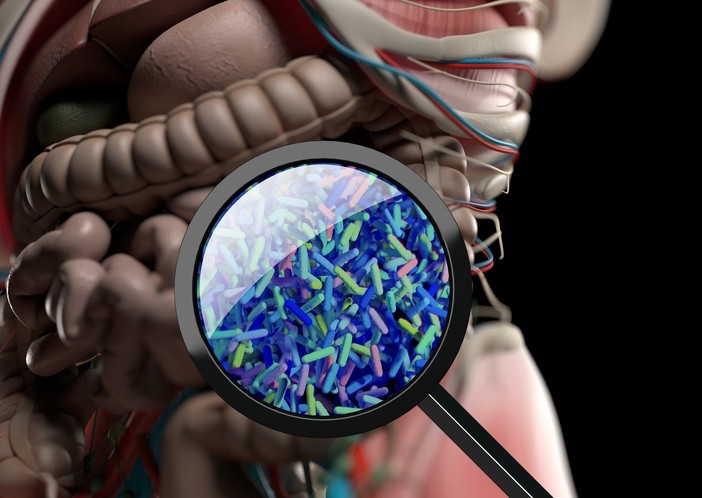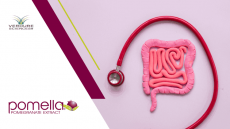Study explores microbiome safety of antimicrobial plant in women's health

Antibiotics save lives, however they alter the composition and diversity of the gastrointestinal microbiota, which is associated with adverse health effects.
Benzyl isothiocyanate (BITC) from the food and medicinal plant nasturtium (Tropaeolum majus) is known for its antimicrobial activity and is regularly used to treat urinary tract and upper respiratory tract infections.
In this German study, partly supported by a grant from herbal medicine company Repha GmbH, researchers investigated whether a 14-day nasturtium intervention (3 g daily) would impact normal gut microbiota composition in healthy women.
They found that after the intervention "mean gut microbiome composition did not significantly differ between groups".
"On an individual level, some large changes were observed between sampling points, however," the authors wrote. "Correlation analysis in subgroups revealed associations between gut microbiota and the circulating metabolome, as well as between changes in blood markers and bacterial gut species."
Growing interest in plants’ antimicrobial properties
Widespread use of antibiotics means some microorganisms are now resistant to different drugs. Because new antibiotics are not being developed, this has driven interest in the antimicrobial properties of plants.
Nasturtium (also known as Indian cress) complies with German “Commission E” standards for herbal medicinal products and is widely used in cooking and as a dietary supplement.
Brassicales plants, like nasturtium, produce phytochemicals called glucosinolates (GLSs). When cells are injured, GLSs come into contact with the plants’ enzyme myrosinase, which leads to the formation of isothiocyanates (ITCs), thiocyanates or nitriles.
The degradation product of glucotropaeolin, BITC, is thought to be responsible for nasturtium’s antimicrobial activity. BITC inhibits growth of different bacteria when isolated from human fecal material. The authors noted that this could indicate a potential for controlling human pathogens through dietary intervention.
Study details
This double-blind randomised crossover intervention was a follow-up to a previous trial, which assessed the impact of BITC-containing nasturtium on the lipid regulator prostaglandin E2 in human blood samples.
Here, the researchers focused on the analysis of secondary parameters in a group of healthy female participants between the ages of 20 and 45 years. Participants consumed 1.5 g of nasturtium plant powder (a standardised dried powder provided by Repha GmbH) twice a day, mixed with 20 ml of water. They were asked to follow their usual diet, excluding foods rich in GLS. Researchers collected stool samples and exhaled breath condensate (EBC) for analysis.
The final dataset provided 116 samples—four stool samples each from 29 subjects.
The analyses showed that BITC had no negative impact on diversity and species richness but did find statistically significant antimicrobial effects of the intervention in breath condensate and urine.
"We could demonstrate here that no relevant perturbations to the gut microbiome in terms of evident changes in species richness or diversity could be detected upon nasturtium intervention, neither in the BITC-containing group nor the control without preformed BITC," The report concluded.
"In addition, the level of SCFA, as well as different amino acids in serum of subjects, demonstrated high stability during the whole course of the intervention. Considering the recommended use of nasturtium against infections of the upper respiratory tract and urinary tract, this could be advantageous."
Study limitations
The researchers noted that results on sex differences in microbial taxa are inconsistent so far and that the results of this study conducted in healthy female participants cannot be extrapolated to other populations.
They also suggested that establishing a baseline gut microbiome from at least three different sampling points prior to the intervention could help account for variations between participants and "increase the sensitivity in the assessment of the effect of dietary intervention".
Source: Nutrients
https://doi.org/10.3390/nu16030373
“A 14-Day Double-Blind, Randomized, Controlled Crossover Intervention Study with Anti-Bacterial Benzyl Isothiocyanate from Nasturtium (Tropaeolum majus) on Human Gut Microbiome and Host Defense.”
Authors: Pfäffle, S; Herz, C; Brombacher, E; Proietti, M; Gigl, M; Hofstetter, C; Mittermeier-Kleßinger, V; Claßen, S; Tran, H; Dawid, C; Kreutz, C; Gunther, S; Lamy, E.












